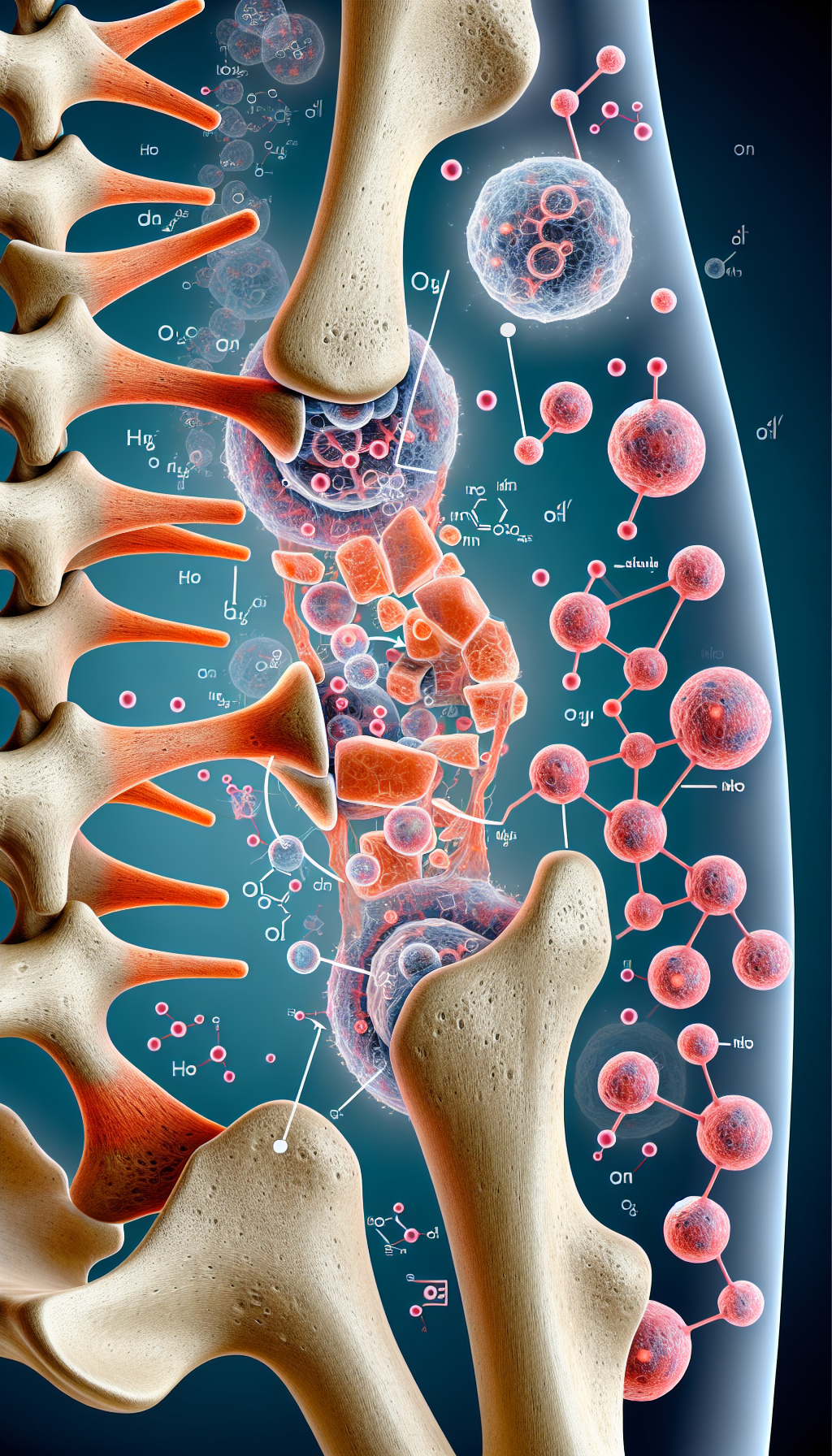Magnesium is a pivotal mineral in the body, playing a key role in over 300 enzyme reactions. It is crucial for a wide range of physiological functions, including muscle and nerve function, blood glucose control, and the regulation of blood pressure. However, one of its most critical roles is in bone health. Magnesium contributes to bone formation, maintenance, and overall bone density, which is essential for preventing osteoporosis and fractures that can occur as a consequence of weakened bones.
Magnesium’s Role in Bone Health
Bone health is a complex interplay of various nutrients, hormones, and lifestyle factors. Magnesium’s role in bone health is multifaceted; it contributes to the structural development of bones, is involved in the metabolism of other bone-related nutrients, and influences the activities of osteoblasts and osteoclasts – the cells responsible for the formation and resorption of bone tissue, respectively.
Bone Structure and Density
Magnesium makes up about 1% of bone mineral and is essential for the proper deposition of calcium in the bone matrix, helping to enhance bone density and strength. Adequate magnesium intake is linked with higher bone mineral density in both men and women, which is a crucial factor in reducing the risk of bone fractures and osteoporosis.
Nutrient Metabolism and Absorption
Magnesium works closely with calcium and vitamin D, two other vital nutrients for bone health. It helps convert vitamin D into its active form, which, in turn, aids the absorption of calcium from the digestive tract into the blood. Without sufficient magnesium, the levels of parathyroid hormone and the active form of vitamin D decrease, leading to problems with bone homeostasis.
Hormonal Influence
The mineral also has an impact on the secretion and action of parathyroid hormone, which is critical for bone remodeling. Magnesium deficiency can lead to alterations in the secretion and function of this hormone, negatively affecting bone formation and repair.
Factors Affecting Magnesium Levels
Several factors can influence magnesium levels in the body, including dietary intake, gastrointestinal absorption, renal excretion, and the presence of certain chronic diseases. It’s essential to maintain a diet rich in magnesium to ensure adequate levels for bone health and other bodily functions.
Dietary Sources of Magnesium
Magnesium is abundantly present in foods such as green leafy vegetables, nuts, seeds, and whole grains. Ensuring a balanced diet that includes these foods is vital for maintaining sufficient magnesium levels. Learn more about calcium-rich foods for optimal bone health.
Absorption and Excretion
The efficiency of magnesium absorption can vary based on individual health and the presence of other nutrients. Certain medications and medical conditions can also affect the excretion of magnesium, potentially leading to a deficiency if not managed correctly. Discover how the effects of endocrine disorders can affect bone mass.
Magnesium Deficiency and Bone Health
Magnesium deficiency can have a significant impact on bone health, potentially leading to osteopenia, osteoporosis, and an increased risk of fractures. Symptoms of deficiency can be subtle at first but may manifest as decreased bone density over time.
Symptoms and Diagnosis
Early signs of magnesium deficiency include muscle cramps, fatigue, and irregular heartbeat. However, since magnesium is primarily stored in the bones, a deficiency might not become apparent until bone health is compromised. A combination of dietary assessments, clinical symptoms, and laboratory tests can help diagnose magnesium deficiency.
Addressing Deficiency
To combat magnesium deficiency, one should focus on dietary changes, and if necessary, consider supplementation. It’s essential to consult with a healthcare provider before starting any supplement regimen. Explore the role of nutritional supplements for bone strength.
The Synergy of Magnesium with Other Nutrients
Magnesium does not work in isolation. Its interaction with other nutrients, particularly calcium and vitamin D, is crucial for optimal bone health. Balancing the intake of these nutrients is necessary to prevent imbalances that could otherwise affect bone density and overall health.
Calcium and Magnesium Balance
While calcium is often highlighted for its role in bone health, an overemphasis on calcium without considering magnesium can lead to imbalances. An excess of calcium, especially from supplements, can compete with magnesium for absorption and may lead to a relative magnesium deficiency.
Vitamin D and Magnesium Interaction
Vitamin D’s role in bone health is well-documented, with its primary function being to enhance calcium absorption. Magnesium is essential for the activation of vitamin D, and without adequate magnesium, the benefits of vitamin D cannot be fully realized.
Magnesium Supplementation and Bone Health
For those who have difficulty meeting their magnesium needs through diet alone, supplementation may be a practical approach. When choosing a magnesium supplement, it’s essential to consider the different forms available and their respective absorption rates and bioavailability.
Forms of Magnesium Supplements
Common forms of magnesium supplements include magnesium oxide, citrate, and glycinate. Each form has different properties, with some being more readily absorbed than others. Magnesium citrate and glycinate are often recommended for their higher bioavailability.
Recommendations and Precautions
The recommended daily allowance (RDA) for magnesium varies depending on age, gender, and life stage. It’s important to adhere to these guidelines and not exceed the upper intake levels to avoid adverse effects. As with any supplement, it’s advisable to consult with a healthcare provider before beginning a magnesium supplement, especially for individuals with health conditions or those taking medications.
Conclusion
Magnesium’s importance in bone health cannot be overstated. It plays a critical role in bone formation, density, and overall skeletal integrity. Ensuring adequate magnesium intake through a balanced diet or supplementation is vital for maintaining healthy bones and preventing long-term complications such as osteoporosis.
For those looking to delve deeper into the intricate relationship between minerals and bone health, or for personalized advice, visiting reliable external resources can be beneficial. Websites like The National Institutes of Health’s Office of Dietary Supplements provide detailed information on magnesium, including its role in bone health and recommended intakes. Similarly, specialized platforms like The International Osteoporosis Foundation offer resources on bone health, including the impact of various nutrients and ways to prevent bone-related diseases.
Maintaining bone health is a lifelong journey that requires attention to various lifestyle and dietary factors. By understanding the crucial role of magnesium and ensuring its adequate presence in our diets, we can support the foundation of a robust skeletal system.



